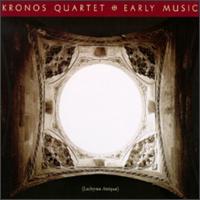Last Year's Man has written a great response, The Human Desire for Order, to my previous post on Hak Nam, where he reminds us not to romanticize the uninhibited, unorganized growth of anarchic space (Republican free market ideology?), and remember order is natural, safe, and makes creativity possible (Democratic government intervention?). He uses the idea of Chinese Hakka architecture as an example of good space. Beautiful.





"Urbanus design process began with the simple question of how to adapt this old housing type to a radical new reality, the scale and pace of China’s urbanization. Fifty years ago China was mostly a country of rural villages. Today more than 150 of its cities have a population of a million or more — compared with just nine in the United States — and the speed of urbanization is only likely to accelerate.
One result has been a nagging housing crisis as migrants in desperate need of work pour into booming cities like Shenzhen and Guangzhou. Because the government stopped building large-scale public housing a decade ago, most end up in squalid neighborhoods of densely packed towers that were built by local developers with little oversight. Often the country's new rich live sealed off in glittering high-rises right next door, seemingly indifferent to the poverty around them.
Inserted into this dystopian universe of colorless skyscrapers, the primal drumlike form of Urbanus's tulous will have a powerful symbolic presence. They suggest fortifications against a contemporary marauder: the speculators who have so often forced the poor out of urban neighborhoods to make way for new development ...
The apartments themselves recall Le Corbusier’s notion of “minimal” architecture, compact, super-efficient spaces that he modeled after monks’ cells. The smaller units in the tulou are essentially nothing more than dormitory rooms that serve the building’s service staff. The larger apartments, designed for groups of migrant workers or small families, have small living areas with bathrooms neatly tucked behind the kitchens ...
A communal spirit is fostered by rings of balconies surrounding the central court and bridges linking terraces and gardens on the complex’s upper levels. Like in some earlier Communist-era housing projects, such areas are intended to lure people out of their apartments and to encourage interaction. They also convey a generous sense of space even as the design maximizes efficiency."
-- Reinventing Hakka Tulou for Modern Living



Not to be suspicious of everything 'made in China', but unfortunately, with my dystopian bent, the fist thing that came to my mind was Bentham / Foucault's Panopticon:
"The Panopticon is a type of prison building designed by English philosopher and social theorist Jeremy Bentham in 1785. The concept of the design is to allow an observer to observe (-opticon) all (pan-) prisoners without the prisoners being able to tell whether they are being watched, thereby conveying what one architect has called the "sentiment of an invisible omniscience." Bentham himself described the Panopticon as "a new mode of obtaining power of mind over mind, in a quantity hitherto without example ...
... the design was invoked by Michel Foucault (in Discipline and Punish) as metaphor for modern "disciplinary" societies and its pervasive inclination to observe and normalise. Foucault proposes that not only prisons but all hierarchical structures like the army, the school, the hospital and the factory have evolved through history to resemble Bentham's Panopticon."
-- Wikipedia : Panopticon

An interesting contrast. I suppose, in any densely packed urban space, including Hak Nam, one would have to consider the inclination to 'observe' and 'normalize'. It doesn't have to be round. It could be the Yamanote-line in Tokyo! (wait... that's kind of round, but whatever...) I Guess it just depends on what's in the center of that tulou... village hearth of communal spirit, or Big Brother? In the end, tulou does look like a far nicer place to dwell than Hak Nam.













No comments:
Post a Comment